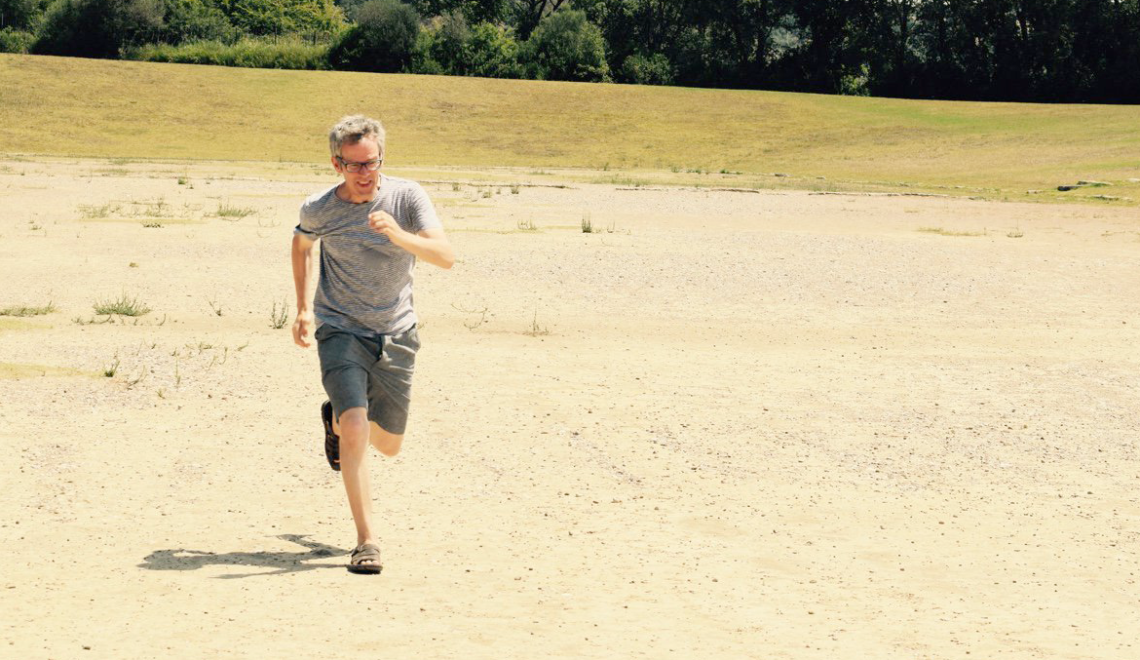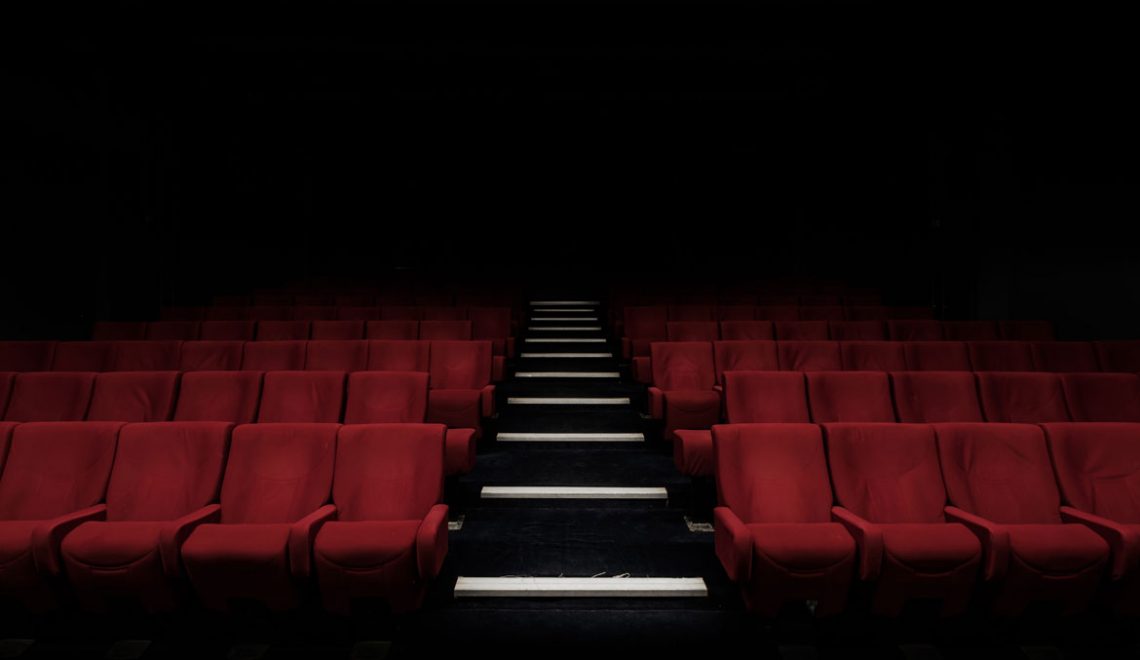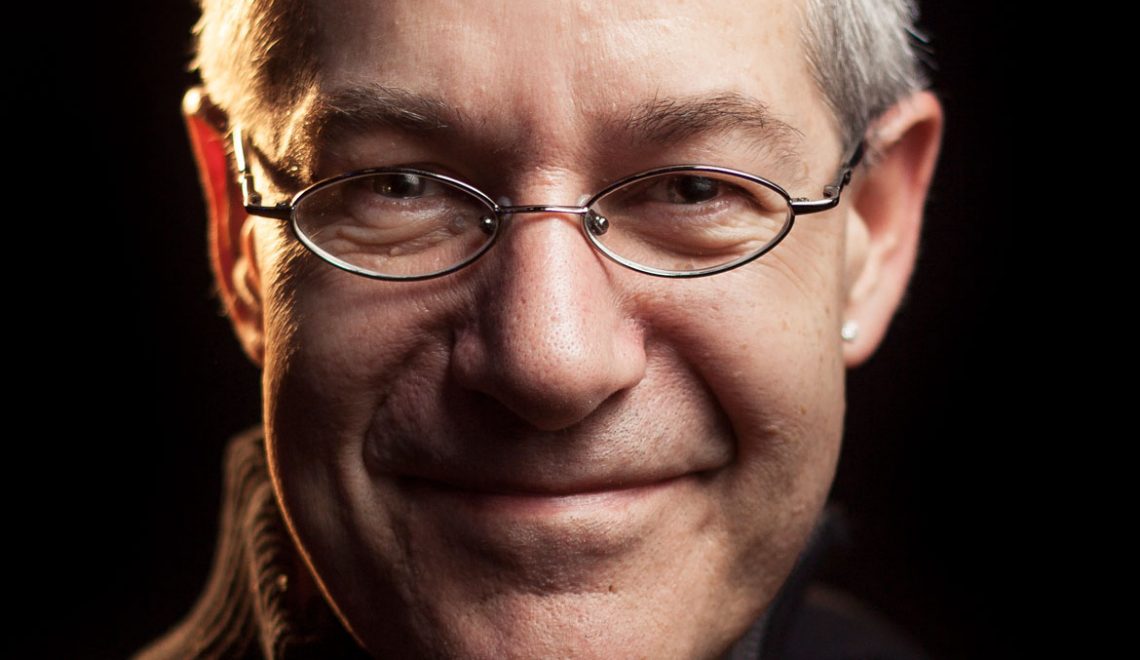
Tim Whitmarsh is the A.G. Leventis Professor of Greek culture at the University of Cambridge. He has previously held positions at the University of Exeter, where he remains an honorary fellow, and the University of Oxford as Professor of Ancient Literatures. In addition to his love of all things Greek, which is demonstrated by the above picture of Tim running the length of the ancient stadium at Olympia; he has also written a book on atheism in the ancient world. In this interview, we have touched on a plethora of subjects from Pink Floyd to his favourite books, spoiler alert – one of them is Under Another Sky by Charlotte Higgins. It has been an absolute joy to interview Tim and we hope you enjoy reading it.
Introduction
Q: What is your dinner party monologue for when someone says “and what do you do?”
A: I say ‘mind your own business’. I’m a terrible guest and I never get invited back. Actually, I would say being a classicist is like being a psychotherapist for culture as a whole. Our role in life is to help society recover the memories it has lost through senescence, trauma and repression, and to help it question its false memories.
Early Life
Q: Can you tell us a little bit about where you grew up; were you a rural or city dweller?
A: I was born in a city in Essex, which is a much-mocked part of England, and rightly so. But I grew up, insofar as I have grown up at all, in the countryside, a very beautiful area on the border between Herefordshire and Shropshire, near Wales. I have an equivocal relationship with rural Britain: I find it frustratingly conservative, but very beautiful and evocative. Like many British people I don’t know how to, or whether I should, let go of the picturesque nineteenth-century world of Turner, Gainsborough and Housman. Also, it was an ancient landscape. A childhood spent among old castles and hill forts was deeply formative, so the allure of antiquity came to me early.
Q: What subject(s) did you excel at in school, and which did you find most challenging?
A: Languages, mathematics, and Defence against the Dark Arts.
I didn’t like my early schooling, I found it brutal and alienating.
Q: Can you recall any reoccurring comments from your school reports?
A: The teachers always had me down as a head-in-the-clouds, dreamer type. Not at all inaccurate (I was always drawing and writing), but it also reflects on them: I went to schools that were keen on no-nonsense pragmatism and not very tolerant of creativity. You know that teacher who you can hear in the background on Pink Floyd’s ‘Another Brick in the Wall’, the one who says ‘if you don’t eat your meat, you can’t have any pudding’? I knew that sort of teacher. I didn’t like my early schooling, I found it brutal and alienating.
Q: Did you ever have a eureka moment where you thought, “this is the subject I want to study”?
A: Yes, when the publishers offered me money for Battling the Gods. Seriously … not really. We specialise quite early in the UK system, so basically when you choose your A-Levels at the age of around 16 you are in effect deciding the kind of thing you want to study at university (where again we tend to specialise, unlike in the US system where students are encouraged to try lots of different things). I started out doing Double Maths, French and German when I was 16, but I changed to French, Latin and Greek for reasons I don’t really remember (other than not getting on with A-level Maths). I’m very glad I did change, but it wasn’t part of a providential plan.
Q: Can you remember the point at which you fell in love with your subject?
A: As I said earlier, I grew up around ancient things. When I was 19 I went to Greece on my own, which began my lifelong attachment, which is unabashedly romantic, to the country (that was, incidentally, the first time I’d ever been on an aeroplane. When I got on the shuttle train to take me to the gate, I thought I was actually on the plane.) So yes, the relationship with classical antiquity is emotional as well as intellectual. It is a form of love. As I get older, the two have started to merge, so I think I write from the heart as well as analytically now. It’s like love within a family: I often allow myself to be very critical indeed of the ancient Greeks, but I resist strongly when others are.

Professor Tim Whitmarsh on the BBC’s The Big Questions discussing ‘Is atheism the rational choice?’.
Academic Education
Regarding your undergraduate studies:
Q: Which University did you study at, and was it your first choice?
A: It was the University of Cambridge, where I recently returned as the A.G. Leventis Professor of Greek Culture. And yes, it was my first choice. I was very lucky to get in, I think. I had good results, but I was a very strange kid aged 18. Lots of hair, into weird music, socially gauche, naïve, and not especially articulate. My teachers at King’s College, Cambridge were pretty unorthodox (and hirsute) themselves, and I guess they took the long view. I’m very grateful for that.
Q: What undergraduate degree did you study for at University, and in hindsight would you select the same subject again?
A: I did a BA in Classics. And yes, I’d definitely do the same again. In fact, in a way, I have been doing the same again ever since: I’m still on the steep, upward learning curve. I sometimes wonder whether the British education system is too narrow – I knew nothing of the ancient near East or Egypt, to say nothing of India or China when I graduated – but I guess you can only learn so much in one go, and it’s always a balance between breadth and depth.
Q: Can you remember a University lecturer who really inspired you?
A: Yes, I had inspirational teachers, and they know it (I’m not going to feed any egos by naming names). One thing that really sticks in the memory is when I was a PhD student, and the legendary Princeton professor Froma Zeitlin engaged me in a lengthy email back-and-forth that lasted about 10 days. It was unbelievably generous of her to spare all of that time with someone she barely knew, and her intellectual inventiveness was genuinely inspiring.
Regarding your postgraduate studies:
Q: What motivated you to further pursue academia?
A: I think I thought there was an intellectual war to be fought. When I was a student I was driven primarily by a deep antipathy towards intellectual conservatism. If anything was received wisdom, it had to be wrong. I’m more mellow and (I hope) less self-aggrandising these days, but I still hate the unthinking repetition of clichés – as if the mere fact of repetition made them true.
Q: What institution(s) did you study at in your pursuit of postgraduate education?
A: I was at Cambridge all the way through BA, then MPhil, then PhD. 8 years of solid Classics. It was pretty tribal back then: if you were in team Cambridge you were unlikely to desert. Having said that, I was glad to escape to the University of Exeter for my first job, in 2001. It was time to leave and unfurl the wings.
Q: What was the title of your PhD thesis, and how would you explain your findings to a novice?
A: Ah. It was called Symboulos: Philosophy, Culture and Power in Roman Greece, and it was probably about as much fun for its twelve or so readers as the title suggests. Since it was really a series of case studies, it’s easier to explain the book that the PhD turned into (Greek Literature and the Roman Empire: The Politics of Imitation, 2001). There I was arguing that Greeks in the early Roman Empire celebrated their literary heritage as a form of resistance to Roman domination, but paradoxically it was those who were most compromised (i.e. Greeks with Roman citizenship) who did so most emphatically. In other words, a Greek literary identity was a most ‘unnatural’ thing: it had to be deliberately and artfully created, and self-consciously too. It was deeply influenced by postcolonial theory, people like Homi Bhabha, and by American theorists of identity like Judith Butler.
Q: If you had your time as a student again, what would you do, if anything, differently?
A: Maybe get outside the Cambridge Classics bubble more. Maybe not. I don’t know, I don’t have any major regrets and I don’t see the point of having them. Ian McEwan’s novels are all about pivotal moments that could have changed everything: it’s a seductive idea for a novelist who is in total control of the narrative, but you don’t have any counterfactuals when you’re in the thick of life.
Research Focus
Q: Tell us about your current research focus?
A: I’m working on a commentary on an ancient Greek novel – it’s filthy, and students need better tools to understand filth – and planning a new book on Epicurus, the ancient philosopher who argued that everything is made of matter, that death is the end, and that we shouldn’t stress about divine punishment. Even in the second century CE, almost half a millennium after he was born, he was huge – indeed, bigger than Jesus, to borrow a phrase. That will be, I hope, another book for the wider public, like Battling the gods. I am thinking of calling it ‘Epicurus our saviour’.
There’s enough verbiage in the world already without people adding to it just for the sake of it.
Q: What do you believe is your single most important piece of research?
A: Well, I only write things that I think are important: there’s enough verbiage in the world already without people adding to it just for the sake of it. Within the academic field I’m known mostly for my work on later Greek literature and particularly novels and fiction; outside I’m known for Battling the gods, and as an atheist who occasionally pops up onscreen, in the newspaper or on the radio. It’s an interesting question, what makes a particular piece of research ‘important’. I suspect that at the broader cultural level that only becomes clear with time. For individuals, though, anything can be important for your life if it catches the wave: a word, a phrase, a sentence. A casual glance from a stranger on a train.
Q: Within your area of study, what breakthroughs are on the horizon?
A: This is an amazing age to be a classicist. Digital and other technologies have revolutionised classical scholarship. Thanks to MRI scanning we can now read papyrus scrolls that were carbonised by the eruption of Mount Vesuvius in 70 CE. Underwater archaeologists exploring the bay of Alexandria have found half a city. We can search millions of words of ancient Greek in 5 seconds: crunching ‘big data’ has transformed our world. Even more than that, though, the lens through which we see antiquity has changed: we’re now much less focused on solitary individual humans, and much more on landscapes, ecosystems, networks. So even without new data, the questions we’re asking are now very different.
Q: Let your imagination take over for a minute and tell us what you hope your successors will be researching in 2116?
A: I imagine they’ll all be poring over this interview for visionary inspiration.
Q: What do you feel your professional legacy will be?
A: I’m not going to answer that, I’m only in my mid-40s!
Current Projects
Q: Are you working on any extra-curricular projects at the moment, such as: books, podcasts, websites, or speaking?
A: Not really extra-curricular, but I am running, along with Dr Emily Kneebone at Cambridge and Dr Laura Miguélez Cavero at Oxford, a project that’s trying to get people excited about Greek epic poetry composed in the Roman Empire. It’s an extraordinary body of material and unjustly neglected. You haven’t lived until you’ve read the poet Nonnus. Outside of that, I play soccer whenever I can, and I write quite a lot of music and literature, but I never do anything with it.
Advice and Tips
Q: If you could give your 18-year-old self one piece of advice, what would it be?
A: I am confident that any advice I gave, my 18-year-old self would ignore. Thank goodness.
The roads are littered with the corpses who jumped into the public sphere too quickly.
Q: What advice would you give someone looking to start, or progress his or her career in your field?
A: I think the world is perilous for young academics at the moment: very little job security and a lot of temptations to take short cuts. I think you need to focus on really making sure you’ve got something important and substantial to say at the academic level before worrying about blogging and tweeting everything. Mary Beard only became a real media superstar after she had built a rock-solid academic reputation, and the roads are littered with the corpses who jumped into the public sphere too quickly. But it’s hard to give any firm advice because things are changing so quickly. I am deeply worried about the future of our universities: I don’t think a world run by Theresa May, Victor Orban, and (heaven forfend – I should tell your readers that this interview took place in October 2016) Donald Trump will have much room for expansive thinking.
Q: Which book would you say has had the biggest impact on your life?
A: Oh no, another impossible question! I have thousands of books, and they’ve all impacted on me, in one way or another. I read Jean-Pierre Vernant voraciously in my 20s: he was France’s most eminent post-war classicist, and he wrote with elegance, energy and clarity. He was also the leader of the résistance in WWII. I always go back to Roland Barthes’ S/Z: such an artful, clever, inventive book. More recently – well, it feels invidious to single things out. Maybe Charlotte Higgins’ Under Another Sky, which is a sort of learned but poetic travelogue of Roman Britain; it’s a very unusual book that has lived with me.
Q: If you could recommend one book to a novice in your field, what would it be?
A: I’d recommend a book on ancient atheism, if only someone had written one. [Battling the Gods]
Conclusion
Q: And finally, we are back at the dinner party. Someone offers you a drink, what do you ask for?
A: At this point, I miraculously transform into a very civilised dinner guest, and graciously accept a negroni.
If you’d like to find out more about Professor Tim Whitmarsh you can check out his academic profile, Wikipedia profile and Twitter page.
Advertisement









